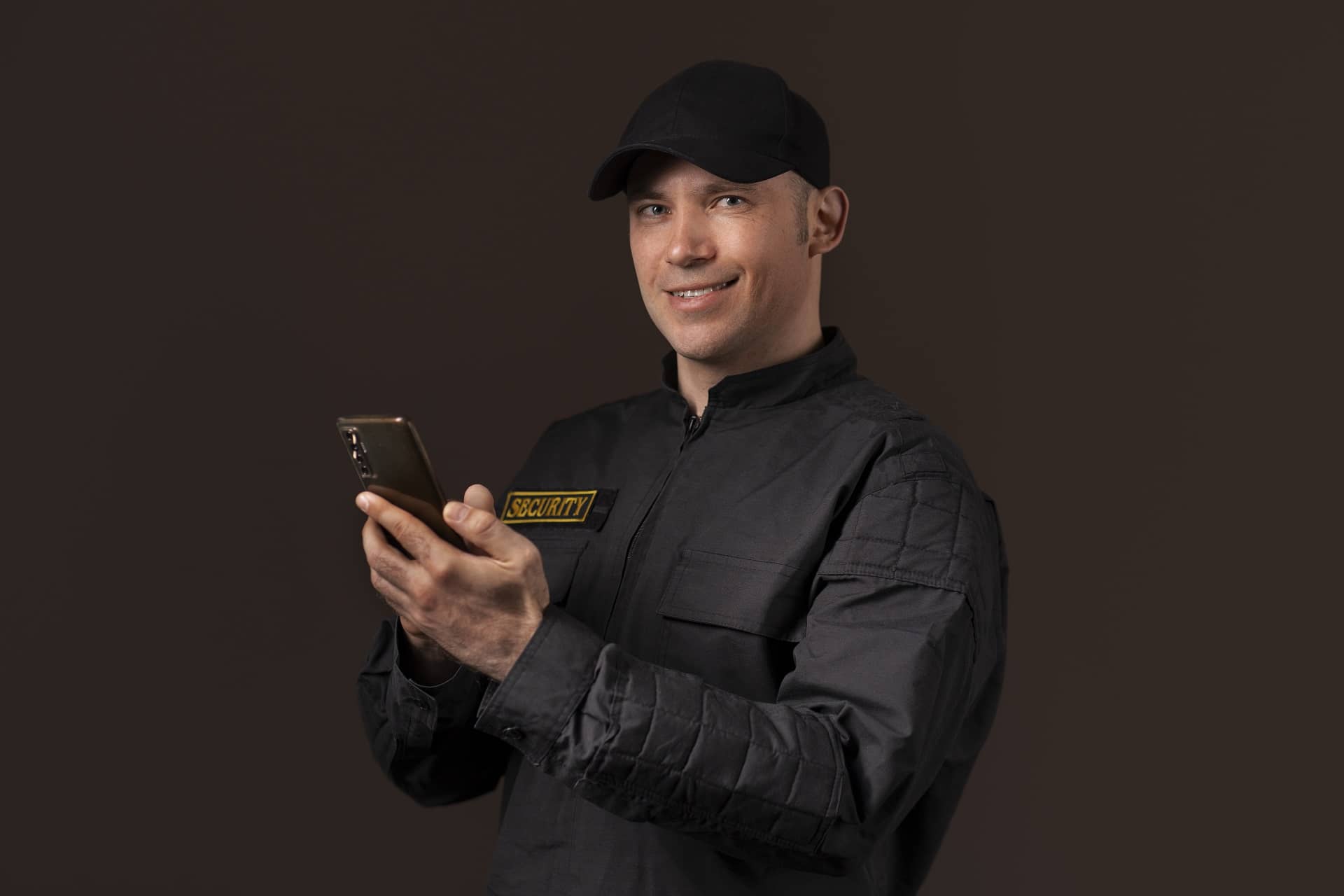Building a Strong Security Guard Team with Mobile Technology

Security demands are continuously evolving, and with the rapid advancement of technology, security teams must adapt to stay ahead. Mobile technology is one of the most effective tools available, enabling security guard teams to perform their duties more efficiently, stay connected, and improve overall safety. In this article, we will explore how mobile technology is shaping the future of security guard operations and how it can build a stronger, more effective security team.
1. Why Mobile Technology is Essential for Modern Security Operations
Gone are the days when security guards only relied on radios and handwritten logs. Today’s security professionals are equipped with mobile devices that allow them to access critical information in real time, manage incidents efficiently, and communicate directly with their team. By providing mobile apps that enable real-time reporting, tracking, and alerts, security operations are more responsive than ever before.
Mobile technology also helps enhance situational awareness, which is crucial in security operations. A security guard who can access security feeds, floor plans, or emergency protocols instantly can react faster to a situation, improving the team’s overall efficiency and reducing response times.
2. Fostering Seamless Communication and Team Coordination
One of the biggest challenges for security teams is ensuring constant communication. Whether it’s during a routine patrol or an emergency, keeping everyone on the same page can make all the difference. Mobile technology facilitates real-time communication, allowing guards to share updates, report incidents, and seek assistance without delays.
For example, if a guard spots suspicious activity, they can immediately notify their team through a secure messaging app or even send a video or photo. Supervisors can quickly assess the situation and allocate resources as needed. This instant communication fosters a collaborative approach and improves the overall effectiveness of the team.
3. Simplifying Incident Reporting and Data Collection
Imagine the old method of handwritten incident reports—slow, prone to errors, and hard to store. Mobile technology solves these issues by providing easy-to-use apps that allow guards to document incidents in real time. Whether it’s a minor security breach or a serious emergency, guards can quickly upload photos, videos, and detailed descriptions, all stored securely for later use.
The digital nature of mobile reporting ensures that incidents are documented consistently, reducing human error and providing valuable data for future analysis. The ability to access incident records on-the-go also helps security teams learn from past events and improve their response strategies over time.
4. Boosting Security Guard Team Patrol Efficiency and Accountability
Patrol management is one of the most important tasks for security teams, and mobile technology plays a crucial role in enhancing patrol efficiency. GPS tracking and real-time location monitoring help supervisors ensure that guards are following their assigned routes and completing their tasks on schedule.
With mobile devices, guards can “check-in” at specific locations during their patrols, providing a real-time log that verifies each area has been inspected. If a guard misses a check-in or fails to complete a patrol route, an alert can be triggered, prompting immediate corrective action. This added layer of accountability ensures that every part of the facility or site is properly secured.
5. Making Data-Driven Decisions for Continuous Improvement
Mobile technology doesn’t just streamline operations—it also generates valuable data that can be used to optimize security strategies. By collecting real-time data from patrols, incident reports, and even team performance, managers can make data-driven decisions that improve security outcomes.
For instance, if certain areas of a property consistently experience more incidents, managers can adjust patrol routes, add more personnel during high-risk times, or implement additional security measures. This approach allows security teams to adapt and evolve based on actual data rather than assumptions, improving both security outcomes and team efficiency.
6. Streamlining Training and Onboarding for Security Guards
Training and onboarding new security guards can be time-consuming and expensive. Fortunately, mobile technology makes the process faster and more efficient. With mobile apps, new recruits can access training materials, watch instructional videos, and take assessments right from their smartphones. This flexibility allows guards to learn at their own pace and revisit the material as needed.
Furthermore, mobile solutions allow experienced security personnel to stay up to date with the latest security protocols, refresh their skills, and even participate in virtual simulations that mirror real-life emergency situations. This keeps the entire team sharp and prepared for any challenge.
Sign Up Today to Transform Your Security Operations
Ready to take your security operations to the next level? Sign up today and experience the benefits of mobile technology in streamlining your team’s communication, improving patrol efficiency, and making data-driven decisions that enhance overall security. Our platform offers cutting-edge mobile solutions designed to help security teams operate more effectively, stay connected, and respond faster to incidents. Don’t miss out—join us today and start building a stronger, more efficient security guard team.
Conclusion
Building a strong, efficient, and well-coordinated security guard team is no easy feat, but mobile technology is making it much more manageable. By streamlining communication, improving patrol efficiency, simplifying incident reporting, and providing data-driven insights, security teams can enhance their performance and be better prepared for any situation. As mobile technology continues to evolve, its impact on security guard operations will only grow, offering new ways to strengthen teams and increase safety. Teams that embrace these innovations will be better equipped to face the challenges of today’s security landscape.